All videos (English)
Pandemics: How the WHO helps Big Pharma to make billions in profits!
22.09.2021
Subtitle "Afrikaans" was produced by machine.Subtitle "አማርኛ" was produced by machine.Subtitle "العربية " was produced by machine.Subtitle "Ārāmāyâ" was produced by machine.Subtitle "azərbaycan dili " was produced by machine.Subtitle "беларуская мова " was produced by machine.Подзаглавието "България" е създадено от машина.সাবটাইটেল "বাংলা " মেশিন দ্বারা তৈরি করা হয়েছিল।Subtitle "བོད་ཡིག" was produced by machine.Subtitle "босански" was produced by machine.Subtitle "català" was produced by machine.Subtitle "Cebuano" was produced by machine.Subtitle "ગુજરાતી" was produced by machine.Subtitle "corsu" was produced by machine.Podtitul "Čeština" byl vytvořen automaticky.Subtitle "Cymraeg" was produced by machine.Subtitle "Dansk" was produced by machine.Untertitel "Deutsch" wurde maschinell erzeugt.Subtitle "Untertitel" was produced by machine.Ο υπότιτλος "Ελληνικά" δημιουργήθηκε αυτόματα.Subtitle "English" was produced by machine.Subtitle "Esperanto" was produced by machine.El subtítulo "Español" se generó automáticamente.Subtitle "Eesti" was produced by machine.Subtitle "euskara" was produced by machine.Subtitle "فارسی" was produced by machine.Subtitle "Suomi" was produced by machine.Le sous-titrage "Français" a été généré automatiquement.Subtitle "Frysk" was produced by machine.Subtitle "Gaeilge" was produced by machine.Subtitle "Gàidhlig" was produced by machine.Subtitle "Galego" was produced by machine.Subtitle "Schwizerdütsch" was produced by machine.Subtitle "هَوُسَ" was produced by machine.Subtitle "Ōlelo Hawaiʻi" was produced by machine.Subtitle "עברית" was produced by machine.Subtitle "हिन्दी" was produced by machine.Subtitle "Mẹo" was produced by machine.Subtitle "Hrvatski" was produced by machine.Subtitle "Kreyòl ayisyen " was produced by machine.Subtitle "Magyar" was produced by machine.Subtitle "Հայերեն" was produced by machine.Subtitle "Bahasa Indonesia " was produced by machine.Subtitle "Asụsụ Igbo " was produced by machine.Textun"Íslenska" var framkvæmt vélrænt.Sottotitoli "Italiano" sono stati generati automaticamente.字幕は"日本語" 自動的に生成されました。Subtitle "Basa Jawa" was produced by machine.Subtitle "ქართული" was produced by machine.Subtitle "қазақ тілі " was produced by machine.Subtitle "ភាសាខ្មែរ" was produced by machine.Subtitle "ಕನ್ನಡ" was produced by machine.Subtitle "한국어" was produced by machine.Subtitle "कोंकणी語" was produced by machine.Subtitle "کوردی" was produced by machine.Subtitle "Кыргызча" was produced by machine.Subtitle " lingua latina" was produced by machine.Subtitle "Lëtzebuergesch" was produced by machine.Subtitle "Lingala" was produced by machine.Subtitle "ພາສາ" was produced by machine.Subtitle "Lietuvių" was produced by machine.Subtitle "Latviešu" was produced by machine.Subtitle "fiteny malagasy" was produced by machine.Subtitle "te reo Māori" was produced by machine.Subtitle "македонски јазик" was produced by machine.Subtitle "malayāḷaṁ" was produced by machine.Subtitle "Монгол хэл" was produced by machine.Subtitle "मराठी" was produced by machine.Subtitle "Bahasa Malaysia" was produced by machine.Subtitle "Malti" was produced by machine.Subtitle "မြန်မာစာ " was produced by machine.Subtitle "नेपाली" was produced by machine.Ondertitels "Nederlands" machinaal geproduceerd.Subtitle "Norsk" was produced by machine.Subtitle "chiCheŵa" was produced by machine.Subtitle "ਪੰਜਾਬੀ" was produced by machine.Podtytuł "Polska" został utworzony przez maszynę.Subtitle "پښتو" was produced by machine.Legenda "Português" foi gerada automaticamente.Subtitle "Română" was produced by machine.Subtitle "Язык жестов (Русский)" was produced by machine.Субтитры "Pусский" были созданы машиной.Subtitle "Kinyarwanda" was produced by machine.Subtitle "सिन्धी" was produced by machine.Subtitle "Deutschschweizer Gebärdensprache" was produced by machine.Subtitle "සිංහල" was produced by machine.Subtitle "Slovensky" was produced by machine.Subtitle "Slovenski" was produced by machine.Subtitle "gagana fa'a Samoa" was produced by machine.Subtitle "chiShona" was produced by machine.Subtitle "Soomaaliga" was produced by machine.Titra "Shqip" u krijua automatikisht.Subtitle "србски" was produced by machine.Subtitle "Sesotho" was produced by machine.Subtitle "Basa Sunda" was produced by machine.Undertext "Svenska" är maskinell skapad.Subtitle "Kiswahili" was produced by machine.Subtitle "தமிழ்" was produced by machine.Subtitle "తెలుగు" was produced by machine.Subtitle "Тоҷикй" was produced by machine.Subtitle "ภาษาไทย" was produced by machine.ንኡስ ኣርእስቲ "ትግርኛ" ብማሽን እዩ ተፈሪዩ።Subtitle "Türkmençe" was produced by machine.Subtitle "Tagalog" ay nabuo sa pamamagitan ng makina.Altyazı "Türkçe" otomatik olarak oluşturuldu.Subtitle "татар теле" was produced by machine.Subtitle "Українська " was produced by machine.ذیلی عنوان "اردو" مشین کے ذریعہ تیار کیا گیا تھا۔Subtitle "Oʻzbek" was produced by machine.Phụ đề được tạo bởi máy.Subtitle "Serbšćina" was produced by machine.Subtitle "isiXhosa" was produced by machine.Subtitle "ייִדיש" was produced by machine.Subtitle "Yorùbá" was produced by machine.Subtitle "中文" was produced by machine.Subtitle "isiZulu" was produced by machine.
kla.TV accepts no liability for defective translation.kla.TV accepts no liability for defective translation.kla.TV accepts no liability for defective translation.kla.TV accepts no liability for defective translation.kla.TV accepts no liability for defective translation.kla.TV accepts no liability for defective translation.kla.TV не носи отговорност за некачествен превод.অপর্যাপ্ত অনুবাদের জন্য kla.TV কোন দায় বহন করে না।kla.TV accepts no liability for defective translation.kla.TV accepts no liability for defective translation.kla.TV accepts no liability for defective translation.kla.TV accepts no liability for defective translation.kla.TV accepts no liability for defective translation.kla.TV accepts no liability for defective translation.kla.TV nenese žádnou odpovědnost za chybné překlady.kla.TV accepts no liability for defective translation.kla.TV accepts no liability for defective translation.kla.TV übernimmt keine Haftung für mangelhafte Übersetzung.kla.TV accepts no liability for inadequate translationΗ kla.TV δεν φέρει καμία ευθύνη για ανεπαρκή μετάφραση.kla.TV accepts no liability for defective translation.kla.TV accepts no liability for defective translation.kla.TV no se hace responsable de traducciones incorrectas.kla.TV accepts no liability for defective translation.kla.TV accepts no liability for defective translation.kla.TV accepts no liability for defective translation.kla.TV accepts no liability for defective translation.kla.TV n'assume aucune responsabilité en cas de mauvaise traduction.kla.TV accepts no liability for defective translation.kla.TV accepts no liability for defective translation.kla.TV accepts no liability for defective translation.kla.TV accepts no liability for defective translation.kla.TV accepts no liability for defective translation.kla.TV accepts no liability for defective translation.kla.TV accepts no liability for defective translation.kla.TV accepts no liability for defective translation.kla.TV accepts no liability for defective translation.kla.TV accepts no liability for defective translation.kla.TV accepts no liability for defective translation.kla.TV accepts no liability for defective translation.kla.TV nem vállal felelősséget a hibás fordításértkla.TV accepts no liability for defective translation.kla.TV accepts no liability for defective translation.kla.TV accepts no liability for defective translation.kla.TV tekur enga ábyrgð á áræðanleika þýðingarinnarKla.TV non si assume alcuna responsabilità per traduzioni lacunose e/o errate.Kla.TV は、不適切な翻訳に対して一切の責任を負いません。kla.TV accepts no liability for defective translation.kla.TV accepts no liability for defective translation.kla.TV accepts no liability for defective translation.kla.TV accepts no liability for defective translation.kla.TV accepts no liability for defective translation.kla.TV accepts no liability for defective translation.kla.TV accepts no liability for defective translation.kla.TV accepts no liability for defective translation.kla.TV accepts no liability for defective translation.kla.TV accepts no liability for defective translation.kla.TV accepts no liability for defective translation.kla.TV accepts no liability for defective translation.kla.TV accepts no liability for defective translation.kla.TV accepts no liability for defective translation.kla.TV accepts no liability for defective translation.kla.TV accepts no liability for defective translation.kla.TV accepts no liability for defective translation.kla.TV accepts no liability for defective translation.kla.TV accepts no liability for defective translation.kla.TV accepts no liability for defective translation.kla.TV accepts no liability for defective translation.kla.TV accepts no liability for defective translation.kla.TV accepts no liability for defective translation.kla.TV accepts no liability for defective translation.kla.TV accepts no liability for defective translation.kla.TV aanvaardt geen aansprakelijkheid voor foutieve vertalingen.kla.TV accepts no liability for defective translation.kla.TV accepts no liability for defective translation.kla.TV accepts no liability for defective translation.kla.TV nie ponosi odpowiedzialności za wadliwe tłumaczenie.kla.TV accepts no liability for defective translation.kla.TV não se responsabiliza por traduções defeituosas.kla.TV accepts no liability for defective translation.kla.TV accepts no liability for defective translation.kla.TV не несет ответственности за некачественный перевод.kla.TV accepts no liability for defective translation.kla.TV accepts no liability for defective translation.kla.TV accepts no liability for defective translation.kla.TV accepts no liability for defective translation.kla.TV accepts no liability for defective translation.kla.TV accepts no liability for defective translation.kla.TV accepts no liability for defective translation.kla.TV accepts no liability for defective translation.kla.TV accepts no liability for defective translation.kla.TV nuk mban asnjë përgjegjësi për përkthime joadekuate.kla.TV accepts no liability for defective translation.kla.TV accepts no liability for defective translation.kla.TV accepts no liability for defective translation.Kla.TV tar inget ansvar för felaktiga översättningar.kla.TV accepts no liability for defective translation.kla.TV accepts no liability for defective translation.kla.TV accepts no liability for defective translation.kla.TV accepts no liability for defective translation.kla.TV accepts no liability for defective translation.kla.TV ንዝኾነ ጉድለት ትርጉም ዝኾነ ይኹን ሓላፍነት ኣይቅበልን እዩ።kla.TV accepts no liability for defective translation.kla. Walang pananagutan ang TV sa mga depektibong pagsasalin.kla.TV hatalı çeviriler için hiçbir sorumluluk kabul etmez.kla.TV accepts no liability for defective translation.kla.TV accepts no liability for defective translation.kla.TV عیب دار ترجمہ کے لیے کوئی ذمہ داری قبول نہیں کرتا ہے۔kla.TV accepts no liability for defective translation.Kla. TV không chịu trách nhiệm về bản dịch không đầy đủ.kla.TV accepts no liability for defective translation.kla.TV accepts no liability for defective translation.kla.TV accepts no liability for defective translation.kla.TV accepts no liability for defective translation.kla.TV accepts no liability for defective translation.kla.TV accepts no liability for defective translation.
This is a modal window.
The media could not be loaded, either because the server or network failed or because the format is not supported.
Pandemics: How the WHO helps Big Pharma to make billions in profits!
22.09.2021
www.kla.tv/19883
Reporter Jeremy Loffredo of Children’s Health Defense criticizes the World Health Organization’s proximity to the pharmaceutical industry. Listen to his insightful argument!
[continue reading]
Pandemics: How the WHO helps Big Pharma to make billions in profits!
Download broadcast and attachments in the wanted quality: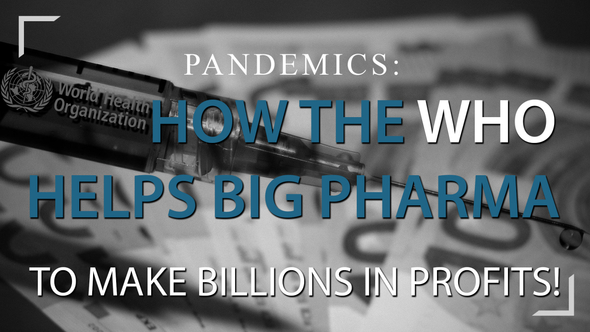
Hashtags:
Useage rights:
Standard-Kla.TV-Licence
Trending on Kla.TV



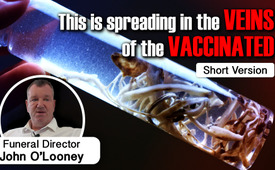
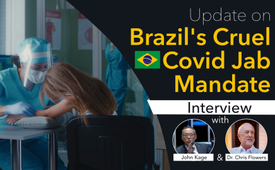
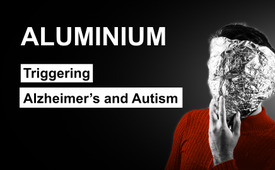
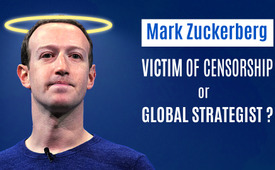
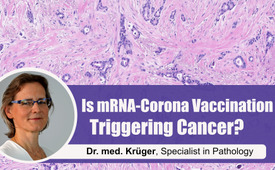
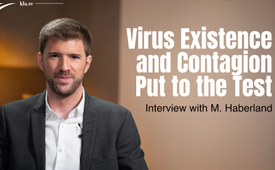
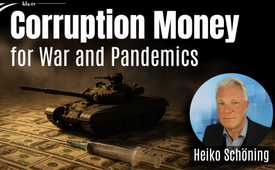

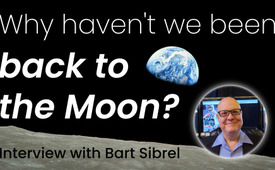
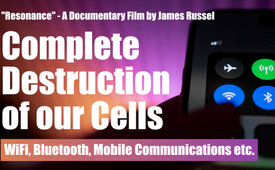
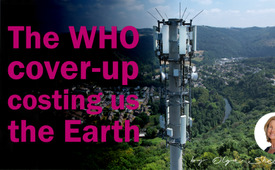
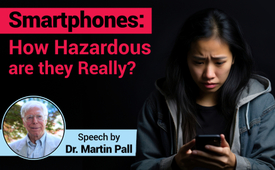
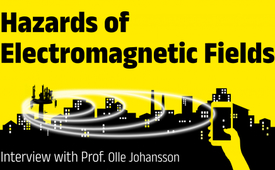
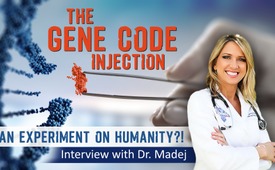
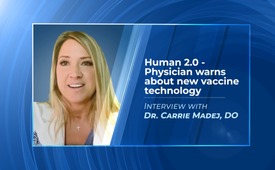



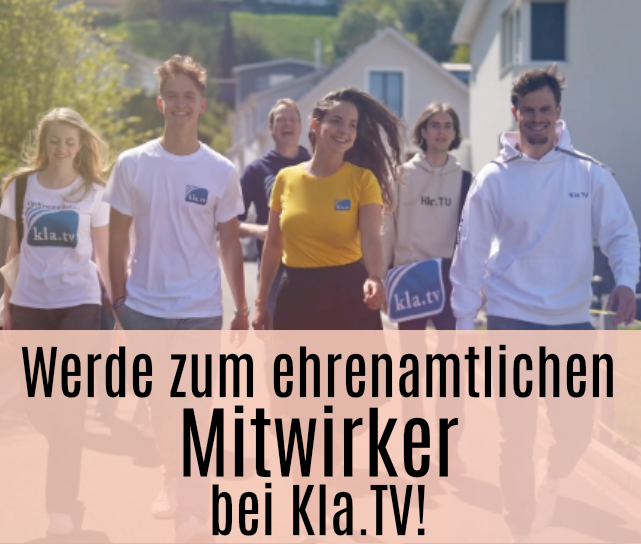
22.09.2021 | www.kla.tv/19883
The World Health Organization (WHO) was founded in 1948 and today has 194 member states. Its constitution states that its purpose is to help all peoples to achieve the best possible state of health. In recent years though, the WHO’s proximity to the pharma industry has faced growing criticism. Reporter Jeremy Loffredo of Children’s Health Defense also criticised them in an October 2020 article. Children’s Health Defense is an organization that advocates worldwide for people’s health. Listen now to the slightly abridged article: “When the WHO broadened its definition of ‘global pandemic’ in 2009, H1N1 vaccine makers profited at the taxpayers’ expense. Manufacturers of the COVID vaccine are likely to reap even more benefits. In the years leading up to 2009, the World Health Organization worked alongside vaccine manufacturers, namely GlaxoSmithKline (GSK), to ensure that European and African countries entered into contracts to vaccinate their citizens in the event of an unforeseen global flu pandemic. These dormant, or ‘sleeping’ contracts, stipulated that if a global pandemic were to occur, it would trigger the contracts, specified pharmaceutical companies would manufacture flu vaccines and the respective governments would pay the vaccine manufacturers. On June 11, 2009, WHO Director-General Margaret Chan declared H1N1 swine flu to be a global pandemic, triggering the dormant contracts and throwing the pharmaceutical and vaccine industry into high gear. Chan was able to make this declaration based on WHO’s official definition of a pandemic, which was updated just a month before declaring the H1N1 pandemic. WHO deleted its definition of a pandemic from the organization’s website and replaced it with a new, more flexible definition. Under the new definition, WHO no longer required that anyone die from an illness before the organization could declare a pandemic. The new definition stipulated only that infections be geographically widespread. At the time WHO declared the H1N1 swine flu a pandemic, only 144 people worldwide had died from the infection. As Wolfgang Wodarg, then chair of the Parliamentary Assembly of the Council of Europe’s Health Committee, explained: “The WHO had a definition of a pandemic, which it defined as a virus with high mortality and high morbidity. And in 2009 they suddenly dropped those two characteristics, saying nothing about severity or mortality.” WHO wasn’t solely responsible for the decision to declare H1N1 a pandemic. WHO officials had consulted an emergency panel of 160 scientists on the International Health Regulations Committee. Although the identities of these scientists weren’t publicly known at the time, a 2010 British Medical Journal investigation revealed that many of the committee members who voted to declare H1N1 a pandemic had financial ties to flu vaccine manufacturers, including GSK. The declaration of H1N1 as a pandemic launched 18 billion dollars worth of “dormant” flu vaccine contracts, and allowed GSK to push its vaccine, Pandemrix, onto countries all over the world. WHO wasn’t solely responsible for the decision to declare H1N1 a pandemic. WHO officials had consulted an emergency panel of 160 scientists on the International Health Regulations Committee. Although the identities of these scientists weren’t publicly known at the time, a 2010 British Medical Journal investigation revealed that many of the committee members who voted to declare H1N1 a pandemic had financial ties to flu vaccine manufacturers, including GSK. The declaration of H1N1 as a pandemic launched 18 billion dollars worth of “dormant” flu vaccine contracts, and allowed GSK to push its vaccine, Pandemrix, onto countries all over the world. The panic that surrounded H1N1 swine flu and the subsequent rush to get vaccinated was in part driven by inflated and widely disseminated models which incorrectly predicted thousands upon thousands of people would die from the flu. These models were provided by Professor Neil Ferguson and his team of researchers at London’s Imperial College. Ferguson’s group advised the UK government to prepare for at least 65,000 deaths. By the end of the pandemic, H1N1 swine flu had claimed the lives of just 457 people. Paul Flynn, the vice chairman of the Council of Europe’s European Health Committee, said of the H1N1 swine flu debacle: “The world has been subjected to a stunt by the greed of the pharmaceutical companies.” Eleven years later, on March 11, 2020, WHO, relying on the same attenuated definition of a pandemic, declared COVID-19 to be a global pandemic. Many governments based their COVID-19 prevention policies, including border closures and lockdowns, on computer models designed by Ferguson and his team at Oxford, despite the exponential inaccuracies of the model he had provided during the H1N1 pandemic. Ferguson’s models predicted more than 2.2 million Americans would die from COVID-19. To date, about 229,000 have died.” […] According to recent reports, Switzerland has spent up to 400 million Swiss francs to reserve Corona vaccines. In Germany, the cost of reserved Corona vaccines is more than 2.7 billion euros. And already at the beginning of the Corona pandemic declared by the WHO, more than 7.4 billion euros were allocated by governments and organizations to the pharma industry after the EU Commission called for the development of Corona vaccines. The WHO’s definition of a “pandemic”, which was adjusted in 2009, is helping the pharma industry to make billions in profits in the current Corona pandemic as well. Thus, the WHO proves to maximize profit for the pharma industry and its products.
from ch
https://de.wikipedia.org/wiki/Weltgesundheitsorganisation
Corona vaccination expenditure: https://www.dw.com/de/74-milliarden-f%C3%BCr-einen-corona-impfstoff/a-53330672
https://www.nzz.ch/schweiz/impfstoff-von-pfizer-schweiz-reserviert-rund-3-millionen-dosen-ld.1586508?reduced=true
https://www.zdf.de/nachrichten/politik/coronavirus-impfstoff-kosten-zulassung-100.html